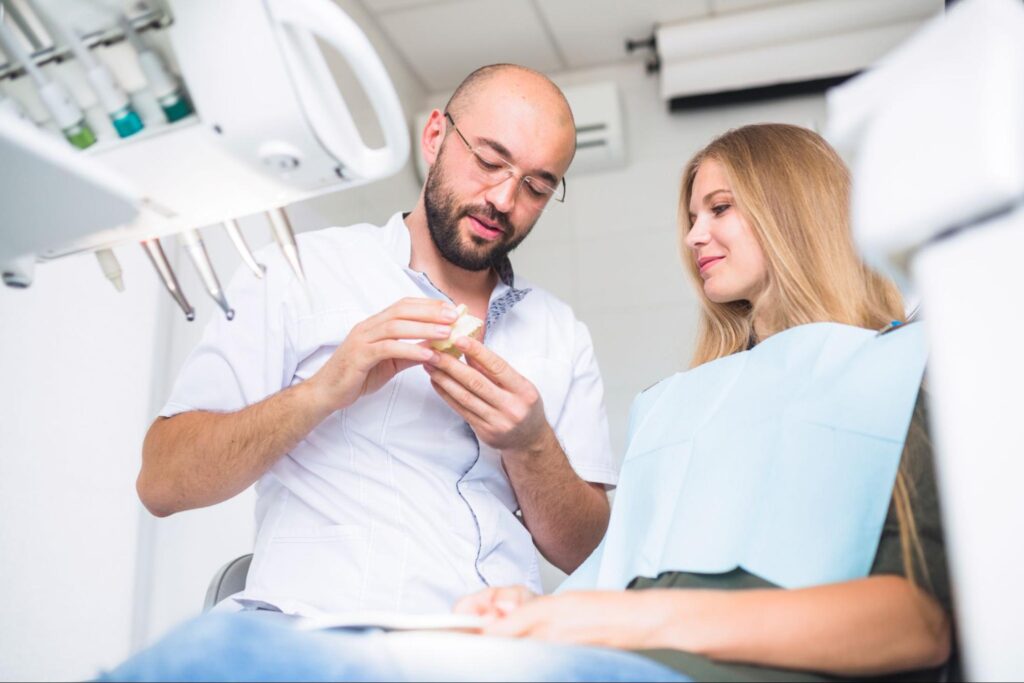
Recovering well after a procedure depends on more than the surgery itself; it requires careful attention to the healing process that follows. For patients undergoing oral surgery, proper postoperative care can significantly impact comfort, recovery time, and long-term outcomes. From managing discomfort to protecting the surgical site, the right steps can help with a smooth healing journey. Here are practical post-operative care tips for every oral surgery patient:
Managing Pain and Swelling
Pain management begins immediately after your oral surgery ends. Take prescribed medications exactly as directed by your surgeon. Pain medications work best when taken on schedule rather than waiting for discomfort to increase. Setting medication reminders helps maintain consistent pain relief throughout the day.
Apply ice packs to the affected area for a few minutes at a time during the first two days. Use a thin cloth to separate the ice pack from your skin to prevent tissue damage. Elevating your head while resting also helps control swelling. Sleep with your head raised on extra pillows for the first few nights to help alleviate discomfort.
Eating and Drinking Safely
Dietary modifications help protect the surgical site during the healing process. Stick to soft foods for the first several days after your procedure. Smoothies, yogurt, scrambled eggs, and mashed potatoes provide nutrition without requiring excessive chewing. Room temperature or cool foods can feel more comfortable than hot items.
Avoid hot beverages and foods for some hours after oral surgery as directed by your dental surgeon. Heat can increase bleeding and disrupt blood clot formation at the surgical site. Avoid using straws, as the suction motion can dislodge protective blood clots and delay the healing process. Stay hydrated by drinking plenty of water throughout your recovery. Proper hydration supports tissue healing and helps your body process medications effectively.
Protecting the Surgical Site
Gentle oral hygiene protects the healing area while maintaining cleanliness. Begin salt water rinses the day after your dental surgery procedure. Mix half a teaspoon of salt in a cup of warm water and gently swish the solution around your mouth. Perform this rinse 2-3 times daily or as directed by your dental professional to keep the area clean.
Avoid vigorous spitting, which can disturb healing tissues and blood clots. Instead, let the salt water solution flow gently from your mouth. Brush your teeth gently around the surgical area using soft-bristled toothbrush. Clean other areas of your mouth normally to maintain overall oral health. Smoking significantly impairs healing and increases infection risk. Avoid all tobacco products during your recovery period.
Supporting a Smooth Recovery
Physical activity affects the healing progress after oral surgery. Heavy lifting and intense physical activity increase blood pressure and can cause bleeding at the surgical site. Monitor your recovery for potential complications. Contact your oral surgeon if you experience excessive bleeding that doesn’t stop with gentle pressure, severe pain that worsens after the first few days, or a high fever.
These symptoms may indicate an infection or other issues that require professional attention. Plan ahead for your recovery period by arranging time off work and assistance with daily activities. Having someone available to help during the first day or two makes recovery more comfortable and helps you follow care instructions properly.
Book an Oral Surgery Appointment Today
Proper post-operative care significantly impacts your recovery from oral surgical procedures. Following these guidelines helps minimize discomfort, prevent complications, and promote healing. Take prescribed medications as directed, protect the surgical site, and maintain a balanced diet throughout your recovery. Schedule your oral surgery consultation to discuss your specific procedure and expectations for recovery.
